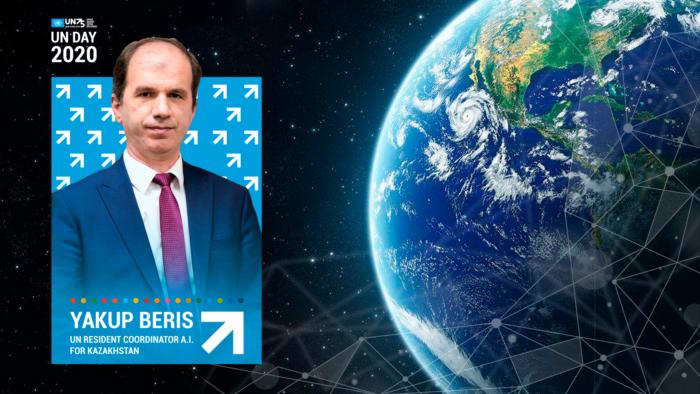Throughout its 75 years of existence, the United Nations has been at the forefront in addressing most burning development challenges of the day facing humanity and the planet. Yes, not always everything went as we would like, but we were always driven by simple, universal, and understandable ideals for everyone. We prioritized peace and international security to create favorable conditions for development. We promoted and guarded human rights. And we worked relentlessly on international development to improve the lives of billions of people for the better.

Three quarters of a century have passed since the ratification of the UN Charter and for some it may stretch beyond imagination, but unfortunately, we still face challenges that threaten global peace and stability and that can reverse decades of development gains.
We all go through tough times. The COVID-19 pandemic gave rise to an unprecedented healthcare crisis which quickly translated into a large-scale economic recession, endangering the effective implementation of the development agenda both at the national and international levels. Not only is COVID-19 a challenge for the implementation of the Sustainable Development Goals, it also threatens to reverse the progress attained in the preceding decades on all three fronts of sustainable development: social, economic, and environmental.
In March this year Kazakhstan faced a dual challenge: the spread of coronavirus was complicated by a dramatic fall in the price of oil which is a key source of internal revenue. COVID-19 exposed pre-existing inequalities with vulnerable groups disproportionately hit by the pandemic and related restrictive measures. Women, people with disabilities, unemployed and self-employed were among the most affected. We have all seen the scale of the government of Kazakhstan’s efforts to bring the situation under control.
In these difficult moments, the United Nations Country Team stood next to the Government providing tangible support focusing on those most hit by the crisis:
– UN immediate response support included procurement of medical supplies, training of health care workers in infection prevention and control, laboratories preparedness worth millions of dollars;
– We assessed the socio-economic impact of the COVID-19 induced crisis on the most vulnerable groups and private businesses to enable informed policy measures;
– Government teleworking arrangements were supported by reskilling over 1,000 civil servants to effectively perform their functions. Support to the digital transformation of the civil service continues;
– Comprehensive support provided to education system to mitigate challenges of distance learning and prepare for schools reopening;
– Substantive analytical support was provided for revision of the Kazakhstan Development Plan 2025.
Consolidated efforts of the UN system in Kazakhstan are encapsulated by the UN’s COVID-19 Socio-Economic Response and Recovery Support Plan, a living document reflecting current and emerging needs for support and coordinated actions of UNCT.
It is not the first crisis and, unfortunately, not the last. As UN Secretary-General Antonio Guterres put it at the UN General Assembly: “COVID-19 is not only a wake-up call, it is a dress rehearsal for the world of challenges to come. We must move forward with humility, recognizing that a microscopic virus has brought the world to its knees.”
This realization should be embedded into the way we think, communicate and act collectively as nations move from immediate responses to mid-term and long-term recovery. We all need to work hard to build back better and greener. The concepts of resilience and preparedness to crises and shocks, underestimated for so long by so many, must find their place at the very core of national development strategies and plans being currently attuned to the emerging development challenges and needs of billions of people across the world.
In this regard we see the new United Nations Sustainable Development Cooperation Framework as a mechanism to further advance national development priorities and the achievement of the 2030 Agenda by consolidating efforts and mobilizing resources of key partners, including the Government, civil society, academia, private sector, media, international community and the UN itself.
The United Nations is committed to deepen its support to Kazakhstan and will remain a valued, rights-based and trusted partner. We stand ready for expanding our cooperation with an ultimate objective to improve the lives of all people of this beautiful country in the spirit of ‘Leaving No One Behind.’
The author is Yakup Beris, UN Resident Coordinator a.i. for Kazakhstan.

